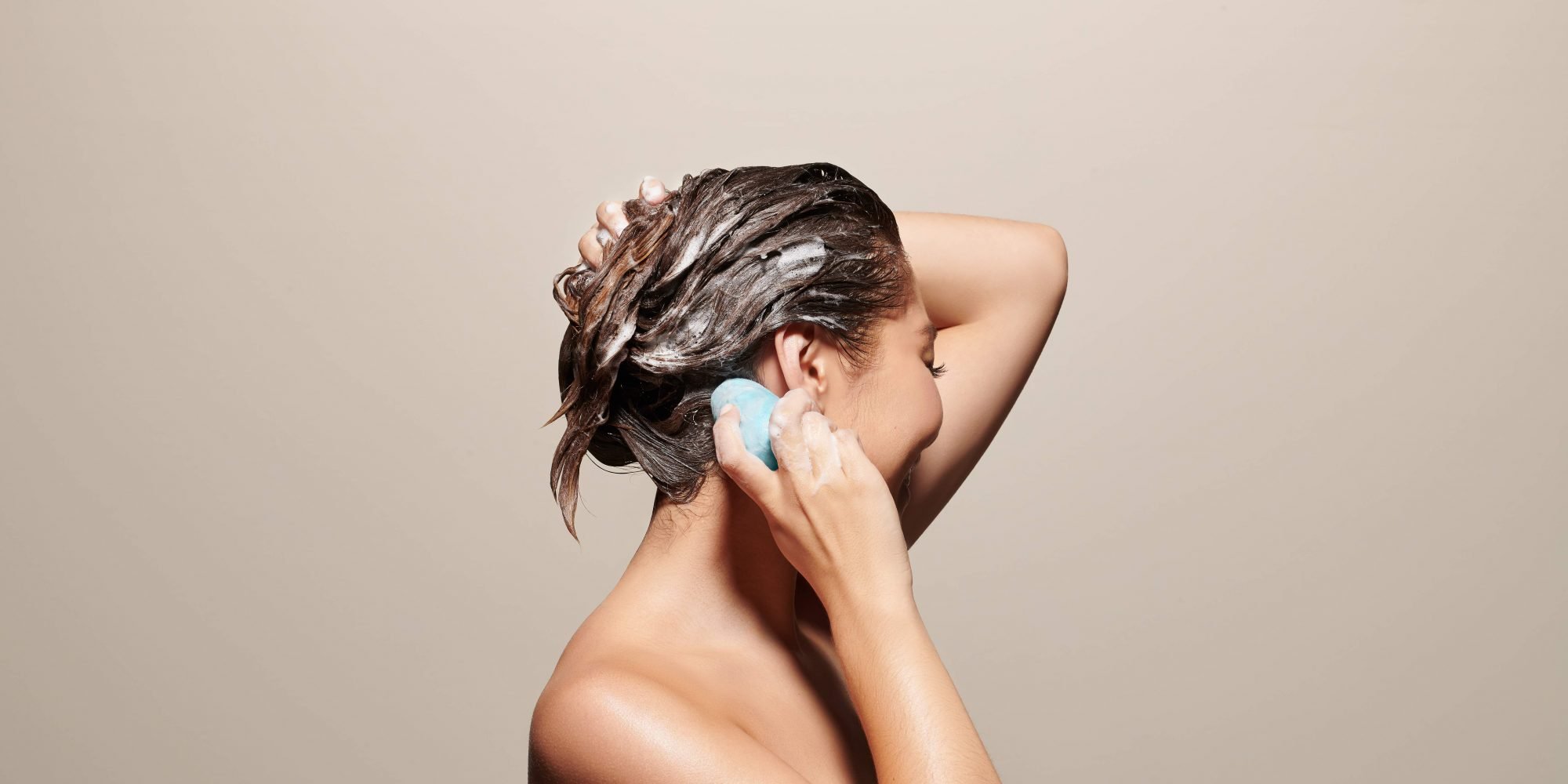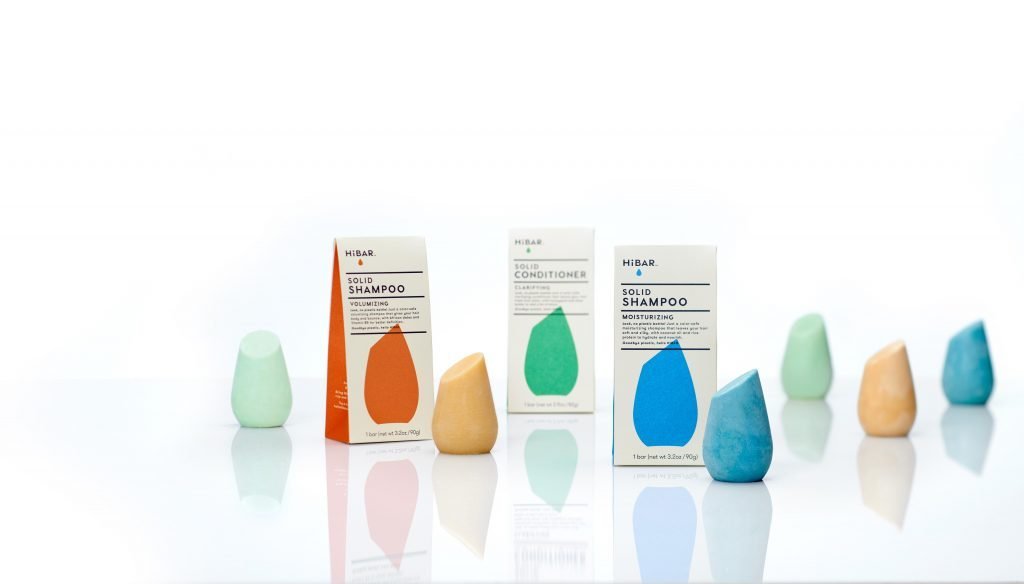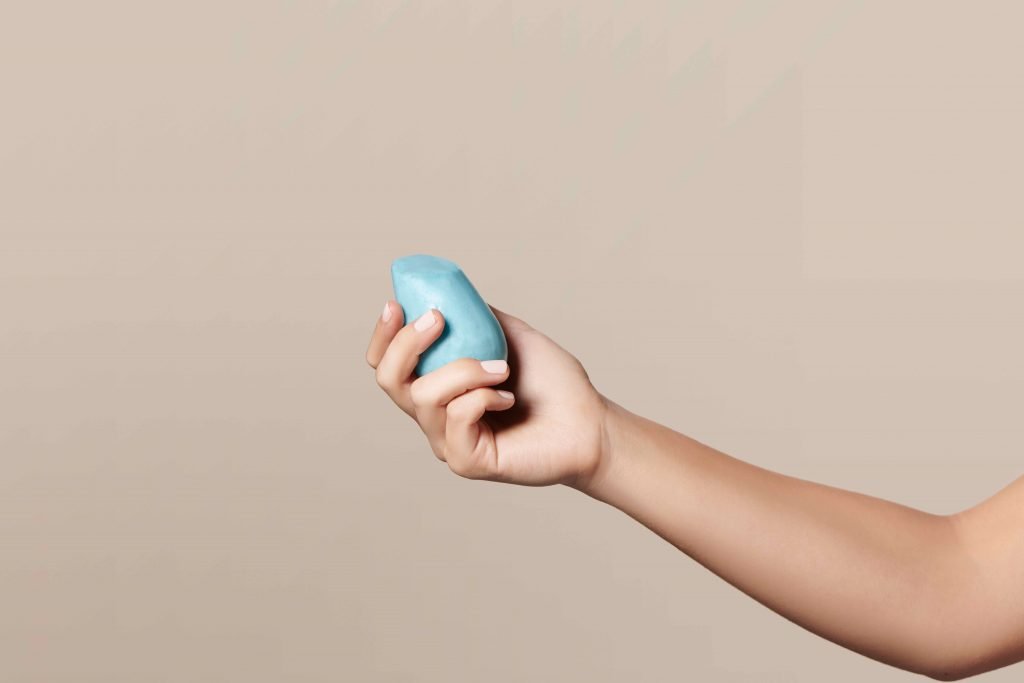
HiBar Addresses The Beauty Industry’s Plastic Problem By Encouraging Bottle-Free Showering
Dion Hughes calls the shower that sparked his brand HiBar an uh-oh moment rather than an aha moment. Returning home to Minneapolis after a trip to Mexico, where he was unnerved by the sight of a beach covered in plastic, he hopped in for a quick wash, and noticed shampoo and conditioner bottles crowding the small space around him.
“I started thinking about what it would take to change that,” says Hughes, founder of creative consultancy Persuasion Arts & Sciences. “I wanted to take my problem-solving skills, and my brand-building background to inspire people to remove plastic from their homes. I researched and looked around for brands that had come up with ideas to address this, and there weren’t that many.”
Five years later, HiBar was born to confront the thorny issue of plastic pollution produced by the beauty industry’s generation of 120 billion units of packaging annually. Its solid shampoos and conditioners leave the plastic bottles behind while providing consumers results that don’t leave them disappointed.

“HiBar’s mission is to take on a seemingly intractable problem and help solve it to prove that we can make a change without having to make a compromise,” says Hughes, noting he’s not the only person compelled to tackle plastic waste. “I think demand is building from customers actively looking to remove plastic from their lives. How many people there are I don’t know, but I believe that, in the near future, there will be a lot of them.”
No matter their dedication to the environment, consumers don’t seek unappealing products. Hughes was underwhelmed by the available products when he scoured the shampoo bar landscape prior to launching HiBar. He found the design of bars to be crunchy and their performance subpar. For HiBar’s design, Hughes cultivated a cheery aesthetic to draw mainstream shoppers not typically plunking down for eco-friendly products. It features vivid green, blue and orange shades that aren’t gender-specific, and eye-catching recyclable and compostable exterior cases to give the brand shelf presence next to standard haircare items.
“I think demand is building from customers actively looking to remove plastic from their lives. How many people there are I don’t know, but I believe that, in the near future, there will be a lot of them.”
Hughes rejected thousands of names for his brand before settling on HiBar. He believes it suits the brand’s can-do approach to environmental concerns. “We can take a category like shampoo and conditioner and reimagine it to solve a problem in the world. We really can expect more of ourselves,” he says. Imagining consumers cleansing their hair with HiBar shampoo to start their day, Hughes adds, “They might be thinking, ‘I’m going to raise the bar and do something really cool today.’”
The shape of HiBar’s shampoos and conditioners was crafted over a year. Hughes explains it’s based on river rocks. Importantly, the shape fits nicely in the palm of a hand and indicates its function to consumers. Their beveled tops signal HiBar’s bars are meant to be applied to hair, and they stand upright to mimic the bottles they’re replacing. “I thought it shouldn’t look generic. It shouldn’t look just like a bar of soap,” says Hughes.

To assist in the manufacturing and distribution of HiBar’s bars, Hughes pulled in experts as partners in the brand. Nora and Jay Schaper, husband-and-wife entrepreneurs behind the body-care brand Bodylish, and Ward Johnson, previously owner of Sojos Pet Food, have joined HiBar as co-founders. To perfect its formulas, Hughes tapped Melissa Christenson, founder of Bridge Product Design + Development, and former president of Intelligent Nutrients and marketing director at The J.R. Watkins Co.
Christenson worked hard to ensure HiBar justifies its promotion of “salon-quality shampoos and conditioners.” It was a tall order to develop haircare products similar to salon offerings in bar forms without sulfates, parabens, silicones and phthalates, but Hughes says Christenson hit the mark. The shampoo, he points out, is “genuinely shampoo with the water removed” and lathers promptly like a conventional shampoo. Each bar is formulated to last as long as a regular 16-oz. bottle of shampoo or conditioner.
“We can take a category like shampoo and conditioner and reimagine it to solve a problem in the world. We really can expect more of ourselves.”
“We tried everything we could with this product to make it have a beautiful sensorial experience,” says Hughes, continuing, “For most consumers, it’s stepping away from what they’ve known. They’ve grown up using liquids and a mom who told them not to use soap to wash their hair. Here we are with a bar, and we have to get people over the barrier. If it works, they will stick with it. A bad hair day is a bad hair day, and no one wants that.”
HiBar has entered natural grocers in the Minneapolis area, including Lakewinds Food Co-op, Mississippi Market Natural Foods Co-op and Linden Hills Co-op. The brand has six stockeeping units: shampoos and conditioners in clarifying, moisturizing and volumizing ranges. Leading up to HiBar’s rollout to stores, Hughes guessed the clarifying shampoo would be the bestseller, but, so far, the moisturizing shampoo is the strongest seller. He reasons shoppers are hunting for hydration as a key benefit. HiBar went live in October, and its early quarterly sales have been doubling forecasts.

Hughes’ dream is for HiBar to spread to large retailers such as Target and CVS. The retail price of a HiBar bar is $12.95 to match the prices of better hair-care products on mass-market store shelves. In addition to responding to a rising consumer interest in combatting the plastic issue, Hughes asserts retailers should consider HiBar as part of efforts to contend with their culpability in disseminating plastic. “They’re a big enabler of the problem,” he says. “So, if they can start to learn themselves about the reinventions of commonplace products and how their customers relate to those, and how they can attract new customers, they should get on that right now.”





Leave a Reply
You must be logged in to post a comment.